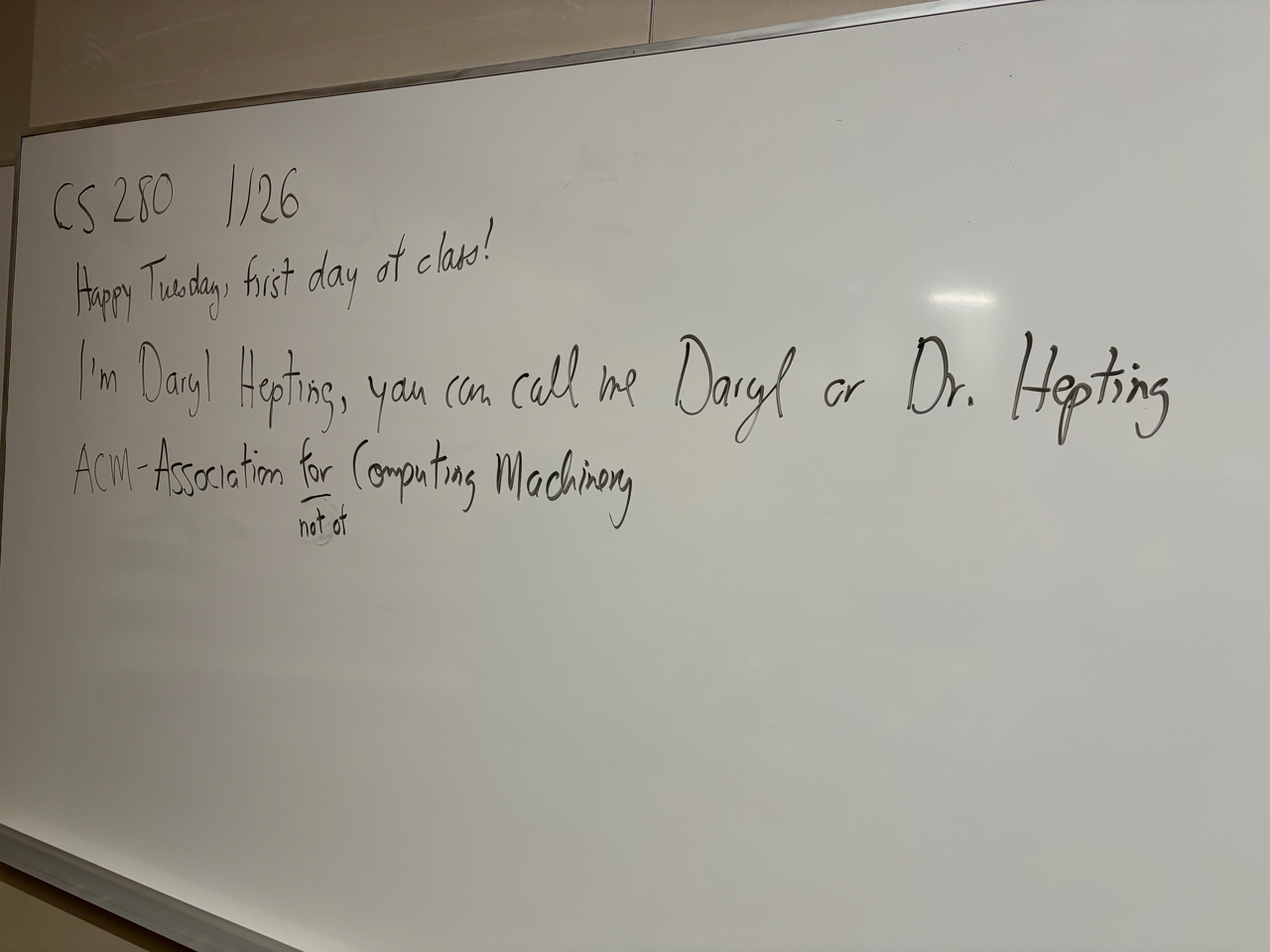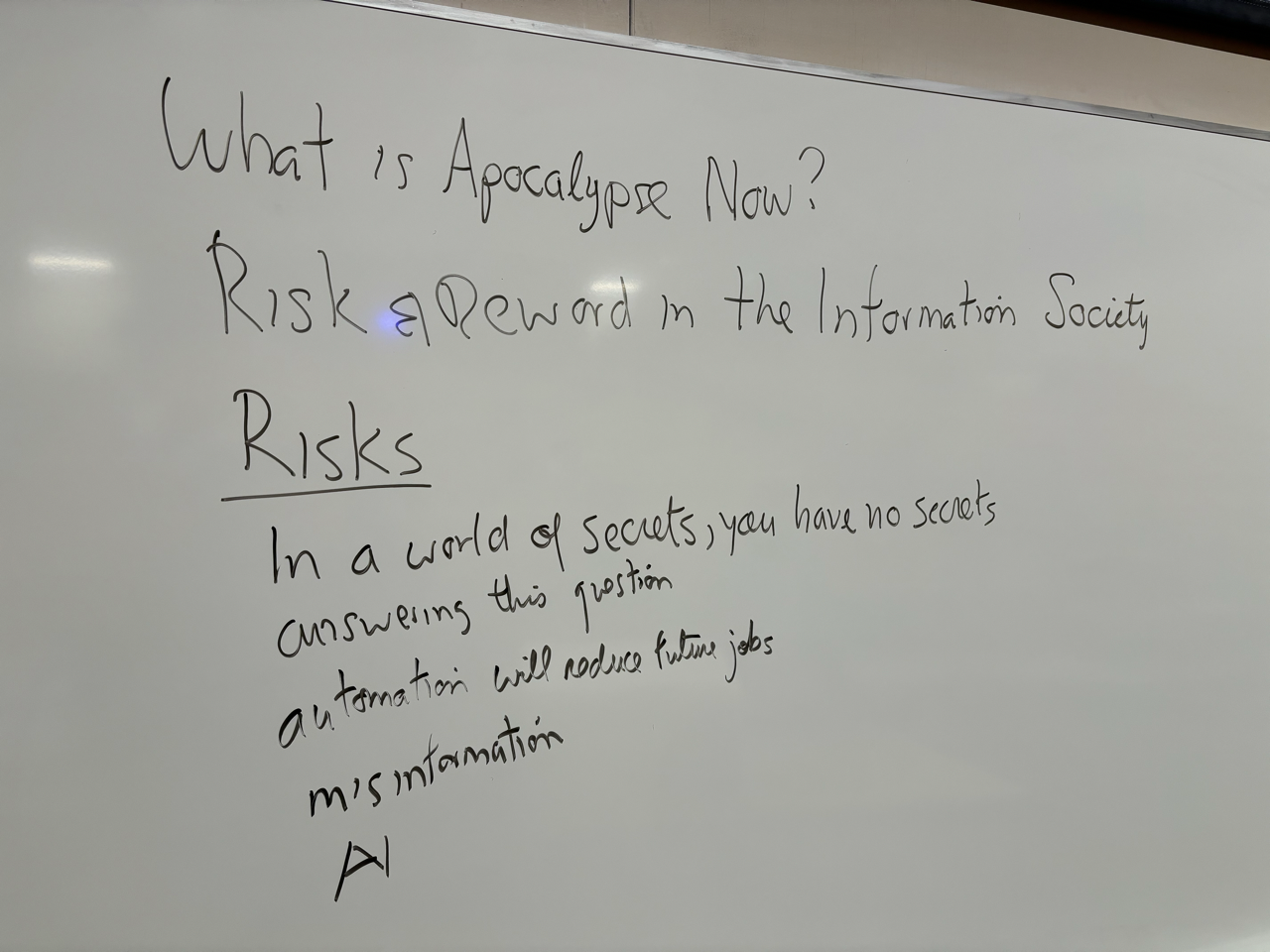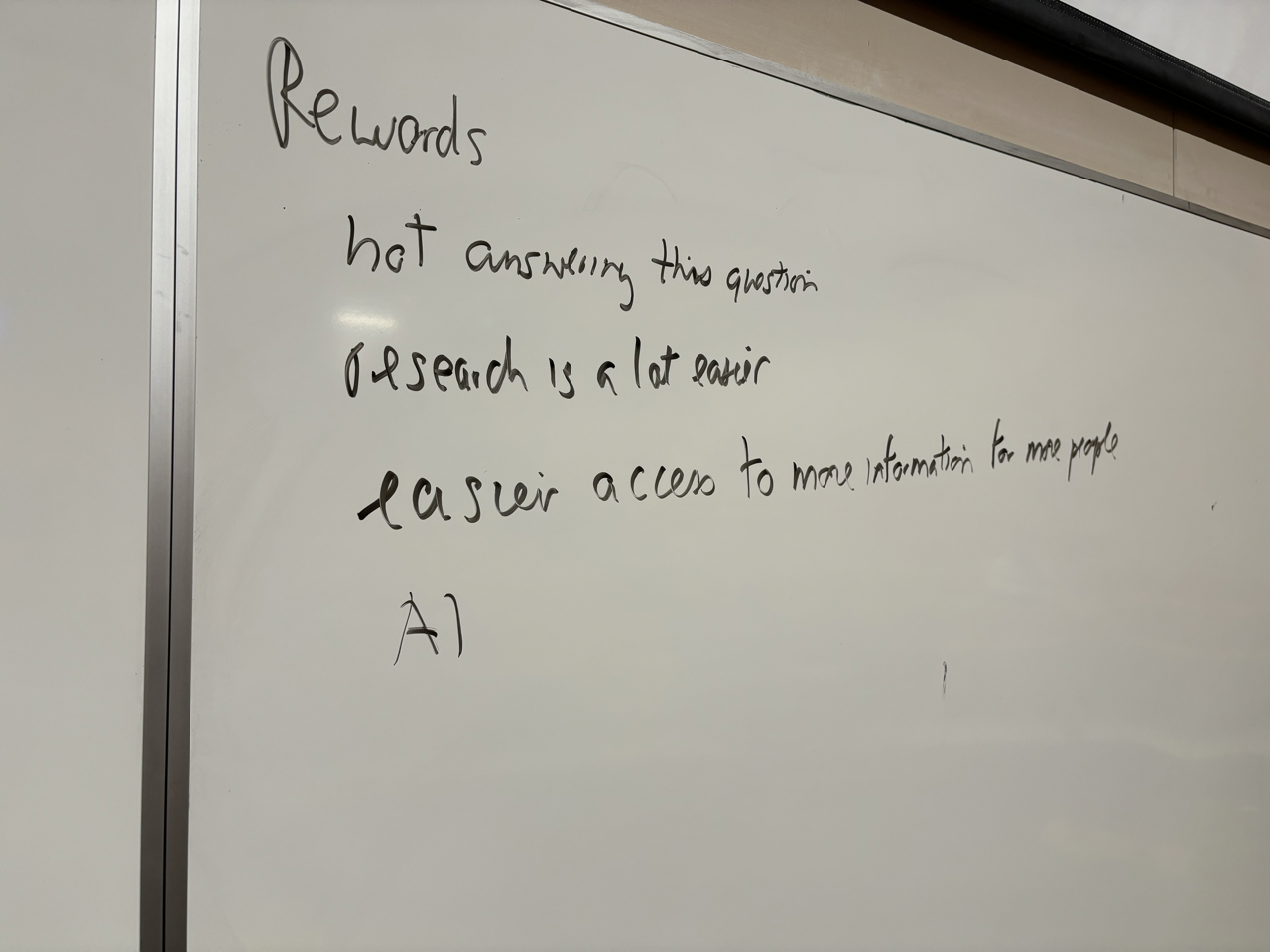Mtg 1/26: Tue-09-Jan-2024
Outline for Today
Welcome
Administration
- Happy Tuesday
- Attendance
- Class calendar for today
- Upcoming events
Response to Responses
I am asking you to write a response to each meeting. This will be a place for me to respond to your responses to the previous meeting.
Results from Last Meeting
Most meetings I will ask you to interact with the class material on UR Courses and I will post the results here from the previous day.
Today
- FYI: there will be another offering of CS 280 in July and August (MTWR 14:30-15:45 with a capacity of 150)
- Introductions
- I will be recording our meetings and then posting an anonymized transcript of audio on my website
- Tour of UR Courses and my course website. UR Courses is divided into topics which reflect the different components of the course
- General
- Meetings
- Responses to Meetings (10)
- Quizzes before Meetings (10)
- Assignments (40)
- Exams (40)
- Participation
- Research Credit (Bonus)
- VIDEO: We need a moral operating system (2011)
- CHOICE: iOS or Android
Summary
Today we reviewed the structure of the class, watched a video, and then got into a discussion of the risks and rewards in the information society
For Next Meeting
- Submit your response to this meeting before 11pm tonight
- Take quiz before the start of our next meeting
- Listen to this episode of Your Undivided Attention
- Read Chapter 1 of Blown to Bits
ACTION: Take quiz before next meeting
Wiki
Link to the UR Courses wiki page for this meeting


